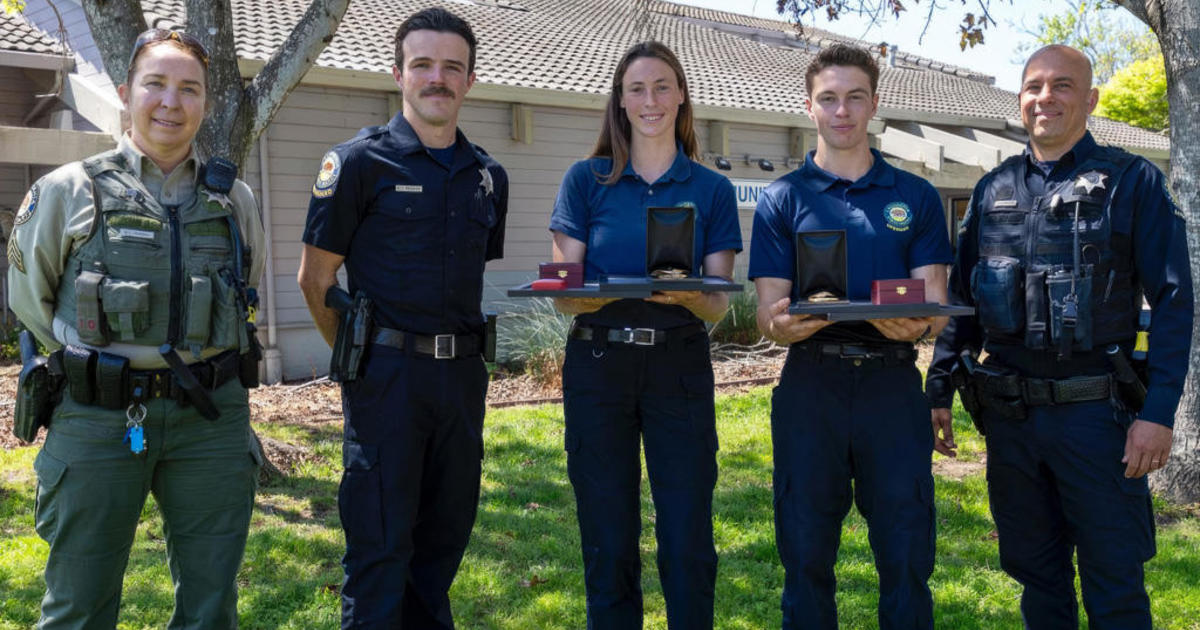2 UC-Berkeley Students Diagnosed With Contagious COVID-19 UK Strain; Six New Cases In Alameda County
BERKELEY (CBS SF) -- Two UC Berkeley students have been diagnosed with the contagious COVID-19 UK strain of the virus amid an overall surge in new cases on campus, officials said.
The infected students reported symptoms and were tested for the coronavirus on Jan. 19 and 21, respectively. Contact tracing by University Health Services staff revealed that both had recently arrived in the U.S. from abroad and were connected.
"It is unfortunately no surprise that this and other variants are being detected locally, given the extent of viral spread happening currently regionally, nationally and internationally," said Dr. Anna Harte, medical director at University Health Services. "With more viruses circulating, emerging strains that are more transmissible will tend to dominate."
At his weekly COVID update, Gov. Gavin Newson said that the state has had 150 confirmed cases of the UK COVID-19 mutation and 960 of what is being called the West Coast variants. No cases of the potent South African strain of the disease has been reported as of yet in California.
"We are monitoring that variant [the West Coast strains], monitoring the UK variant and clearly we have no South African variant to report but we are clearly monitoring that also," he said. "The viralness, the transmissibility of those variants are obviously of concern -- that's why we have to be cautious. That's why we have to continually be mindful; that's why we have to continue to do the things we know we have to do in terms of maintaining physical distance and wearing our masks."
Alameda County on Tuesday reported six new or suspected cases of the UK variant including one of the two cases at UC Berkeley.
University health officials said "there is no indication that the two students had been on the Berkeley campus, except for testing."
On Sunday, UC-Berkeley officials warned of a surge in confirmed COVID-19 cases after 44 students tested positive for the virus over the weekend. All students currently living in campus dorms were asked to self-sequester to help contain the spread. They were told to stay in their rooms as much as possible and wear face coverings whenever in common areas of their dormitory floor.
Since August, officials said, there have been 588 confirmed cases among the student population. But the university's COVID dashboard shows that 44 people tested positive on Saturday, representing 3.2% of the 1,362 tests analyzed.
"As you may be aware, we've seen a surge in confirmed COVID-19 cases amongst students, including some students who live in campus housing," the officials warned in an email to its student population. "As we are committed to your safety and well-being, we are asking for your help in reducing virus transmission."
Among the behaviors officials cautioned about was the tendency for students to gather with classmates and friends.
"We understand that local shelter in place orders may have been lifted, but with the current levels of rising transmission, we need to each do all that we can to help keep ourselves and our community healthy," the warning stated. "Berkeley remains in the Purple Tier, due to widespread community transmission, and the current public health order prohibits gathering indoors with people outside your household."
The two UC Berkeley cases of the UK variant were discovered by a team of researchers who are sequencing virus-positive samples obtained during symptomatic and asymptomatic testing of all onsite students, faculty and staff.
The most recent sequencing also turned up additional details about the local viral variants.
In one set of 95 viral genomes recently sequenced, all collected between Nov. 4, 2020, and Jan. 21, 2021, nearly one-quarter — 26% — were a relatively new California variant called CAL.20C that is sweeping through the state.
As of Feb. 2, California had reported more than 1,000 cases of this variant. In the Los Angeles area, the variant makes up between one-quarter and one-third of all COVID-19 cases. Characteristics of this new variant are still unknown, but there is some concern that it, too, could be more infectious.
In addition, one person who tested positive for CAL.20C in January of this year had previously been infected with a different variant of COVID-19, in July 2020.
"It is really significant that the CAL.20C variant that seems to be taking over at least a third of the cases was able to reinfect someone," said Stacia Wyman leads SARS-CoV-2 genome sequencing efforts. "That person's viral load was very high."



